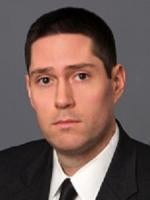On Saturday, March 7, 2020, Governor Andrew Cuomo declared a disaster state of emergency in the State of New York based on the COVID-19 outbreak. One significant consequence is that under a newly-enacted law, unsolicited telemarketing calls to New York residents are now prohibited during a state of emergency.
New York recently passed legislation amending the statute governing its do-not-call registry to add the following prohibition:
It shall be unlawful for any telemarketer doing business in this state to knowingly make an unsolicited telemarketing sales call to any person in a county, city, town or village under a declared state of emergency as described in sections twenty-four or twenty-eight of the executive law.
New York GBS 399-z(5-a). A similar provision was inserted in New York’s Telemarketing and Consumer Fraud and Abuse Prevention Act, making “unsolicited telemarketing sales call[s]” under a declared state of emergency illegal. Notably, while Section 399z(5-a) defines “unsolicited telemarketing sales call” to exclude calls made with prior express consent and calls made in connection with an unterminated existing business relationship, there is no such definition in the latter statute. However, the definition of “telemarketing” in the Telemarketing and Consumer Fraud and Abuse Prevention Act excludes a number of categories of calls, most notably calls to for-profit businesses and calls in which a transaction is not completed. Also, it is unclear whether courts interpreting New York law would treat text messages as calls similar to how federal courts interpret the Telephone Consumer Protection Act.
Because the executive order signed by Governor Cuomo invokes Section 28 of the Executive Law, it automatically triggers the prohibition in the Do Not Call Law. The state of emergency currently extends to September 20, 2020.
Violation of these statutes may result in civil enforcement. Accordingly, businesses calling New York residents should carefully review their procedures to confirm compliance with New York’s new law.




 />i
/>i

